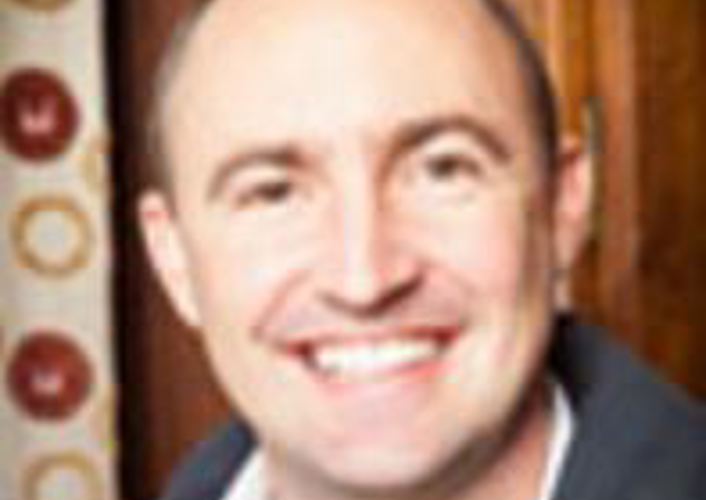'We should be able to evaluate both the independent and state school systems without fear of claims of social bias'

James Callow, Head of Pastoral Care at All Hallows School, discusses the findings of the recent Soft Value Added and Mental Toughness report, looking at both the state and independent sectors.
Having read the article ‘Private School Children are tougher than their State Educated Peers’, I find myself slightly torn. As a pupil, I went through the state system and yet, as a professional I have found myself working in the independent sector. I can see both sides of the debate and have loyalty to both systems. I note that when reading people’s comments about the article there is a similar level of conflict. This often seems to occur when education is perceived to be a class-based argument. In truth, it is easy to see why this happens as media voices and politicians seem to enjoy this approach, the emotion generated by it and the sense of loyalty to one system or the other that it evokes. But that is wrong.
We should be able to evaluate both systems without fear of claims of social bias. There are strengths and merits of both system, but they are different. Further to this, there are differences between all schools and it is all too easy to fall into the trap of sweeping the ‘stereo type brush’ across this discussion. This is why there will inevitably be a difference in the outcomes for the children who go through each system.
I certainly do not believe that there is a difference in the potential of a child coming from a rich or a poorer background. I completely agree with the first point raised in Marvin Arbiton’s response to the article when he says ‘Sending a child to a private school does not make the child more intelligent, one cannot buy brains! There are some very gifted children in all forms of educational establishment’. In fact, at All Hallows we don’t talk about ability as it implies a limit on potential and is a rigid, fixed way of thinking about a child. As Carol Dweck states ‘Test scores and measures of achievement tell you where a pupil is…but they don’t tell you where a pupil could end up’. With this in mind, we focus upon the developing the individual and his / her performance academically, socially, spiritually and physically. There is no glass ceiling put on a child’s potential. In simplistic terms, this highlights one difference between the environment at All Hallows compared to that of both state schools and also many independent schools. The celebration of the individual is embedded in our ethos.
On a recent course that I attended, schools were asked to introduce themselves. Most of the state schools introduced themselves as either ‘good’, ‘in need of improvement ‘or ‘failing’ depending upon what Ofsted had deemed them to be. What a de-motivating system for both children and teachers to be judged against such a narrow set of criteria . There are many fantastic state schools just as there are also poor independent schools. They do well, however, despite a system that narrows and limits what they can offer. Just for the record, I introduced All Hallows ‘as a school that believes in developing the inherent value of each individual and as a wonderful community in which children are brought up.’
In the state sector it is highly likely that my 7 year old daughter would have English and Mathematics lessons through to lunchtime every day of the week. At All Hallows however, she enjoys a more balanced approach to life that I hope will stay with her through the rest of her school career and form her future outlook on life. She enjoys four hours of sport, music, drama, creative design, art, French, Spanish and Forest School amongst other lessons that both educate and broaden her mind. When it comes to choosing a senior school, I will be looking for the same, as that is what I believe is important and what ultimately gives children the opportunity to acquire the qualities noted by Mark Mortimer (Head Master of Warminster School): ‘children who leave school able to thrive, both professional and personally, in the fluid, ever-changing and let-go world of the 21st century.’
Boarding is a feature of many independent schools and one that is also given negative attention in the press where opinion is presented as fact. Focusing on the positive, boarding in the right environment certainly helps to form resilience in pupils. Despite what its deriders may say, when done well, boarding offers children a stable community in which to flourish and form strong attachments which can be significant factors in their overall development and well-being.
In conclusion, the study focuses upon quite a narrow, senior school based cohort. I would question whether the study also takes into account or addresses the vast array of social and economic factors that, alongside education, have a significant impact upon a child’s resilience or ‘toughness’. I know many people, from all walks of life, whose lives have been shaped and developed by all manner of influences, challenges, disasters and successes. Some were educated independently, some were not and some, it seems, were hardly educated at all! Ultimately I believe that it is the sum of all these parts that form a person. I also believe that our environment, at All Hallows, offers the best possible start to this lifelong journey of self-discovery.

